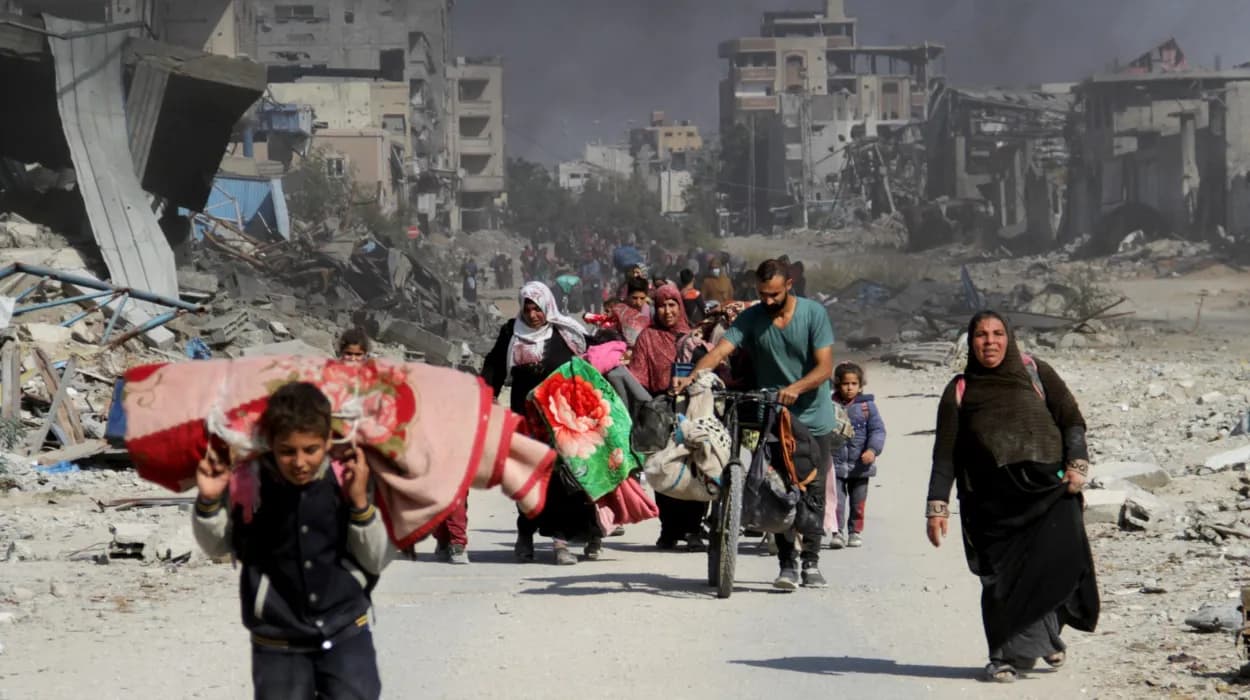Israeli human rights groups
accuse Tel Aviv of committing genocide against Palestinians in Gaza amid
escalating conflict, calling for international investigation and
accountability. The allegations come amid intense military operations and heavy
civilian casualties in the Gaza Strip.
What have Israeli human rights groups accused Tel Aviv of regarding Gaza?
According to a report by Al Jazeera journalist Shireen Abu Akleh, multiple Israeli human rights organisations have formally charged the Israeli government with
"committing genocide against Palestinians in Gaza"
during recent military escalations. These groups argue that Israeli
military actions have resulted in a systematic targeting of Palestinian
civilians, thereby breaching international law provisions against genocide and
crimes against humanity. The charge is unprecedented and highlights the
deepening humanitarian crisis in the region.
Which groups have made these accusations and what evidence have they presented?
Prominent Israeli human rights organisations including
B’Tselem and Breaking the Silence have compiled extensive documentation
detailing Israeli military operations in Gaza. As reported by Reuters
correspondent Talia Carmi, these groups cite evidence such as aerial bombings
of civilian infrastructure, unrestricted blockades causing dire shortages of
essential supplies, and disproportionate use of force leading to thousands of Palestinian
civilian deaths, including women and children.
They argue that these actions meet criteria established under the UN Genocide Convention, particularly
"acts committed with intent to destroy, in whole or in part, a national, ethnical, racial or religious group".
What has been the response from the Israeli government?
The Israeli Defence Ministry, as stated by a spokesperson quoted in Haaretz by correspondent Daniel Levy, has categorically denied any accusations of genocide. It maintains that military operations are strictly targeted at Hamas militants and infrastructure to protect Israeli civilians from rocket attacks. The ministry reiterated adherence to international law and condemned the human rights organisations for what it calls
"politically motivated and baseless allegations".
How has the international community reacted to these claims?
According to the BBC’s Middle East correspondent, Elizabeth
White, the United Nations has expressed deep concern over the rising civilian
toll in Gaza. The UN Secretary-General has called for an immediate ceasefire
and a prompt, impartial investigation into potential war crimes on all sides.
Similarly, Amnesty International has urged the international community to hold
Israel accountable and ensure protection for civilians.
Some Western governments have voiced support for Israel’s
right to self-defence but also emphasised the need for proportionality and
humanitarian access. However, there have been increasing calls within
governments and NGOs for investigations into whether Israeli actions constitute
violations of international humanitarian law.
What is the situation on the ground in Gaza amid these allegations?
As reported by AFP correspondent Laila Hassan, Gaza remains
devastated amid ongoing Israeli airstrikes. Hospitals are overwhelmed with
casualties, and vital infrastructure such as water and electricity have been
severely damaged due to Israeli bombardments. Numerous reports from field
observers describe a humanitarian catastrophe, with tens of thousands displaced
and lacking access to basic needs.
Palestinian officials, quoted by Al Jazeera, accuse Israel
of deliberately targeting civilians and infrastructure to "erase
Palestinian presence" in Gaza, linking this to the charges of genocide.
What legal avenues exist for these human rights groups to pursue their allegations?
Israeli human rights advocates have submitted reports to the
International Criminal Court (ICC) in The Hague, urging the court to open
formal investigations into alleged war crimes and genocidal acts by Israeli
forces. As noted by legal analyst Rachel Stein in Haaretz, while ICC
investigations face political obstacles, the documentation provided strengthens
the case for international legal scrutiny.
Parallel efforts are ongoing to seek UN Security Council
resolutions, though veto powers complicate this route.
Why is this development significant for the Israeli-Palestinian conflict?
This legal framing of Israeli actions as genocide marks a significant escalation in international discourse around the conflict. It challenges longstanding narratives and could influence diplomatic relations, aid policies, and peace negotiations moving forward. The charges put increased pressure on Israel both domestically and internationally to reconsider military strategies and engage in conflict resolution.
Israeli human rights groups have charged the Israeli
government with genocide-like acts against Palestinians in Gaza, presenting
detailed evidence amid ongoing hostilities. The Israeli government denies the
charges, asserting defensive motives and compliance with the law. The
international community calls for ceasefires and investigations, while Gaza
endures severe humanitarian suffering. The developments have significant
ramifications for international law and the future of the Israeli-Palestinian
conflict.
